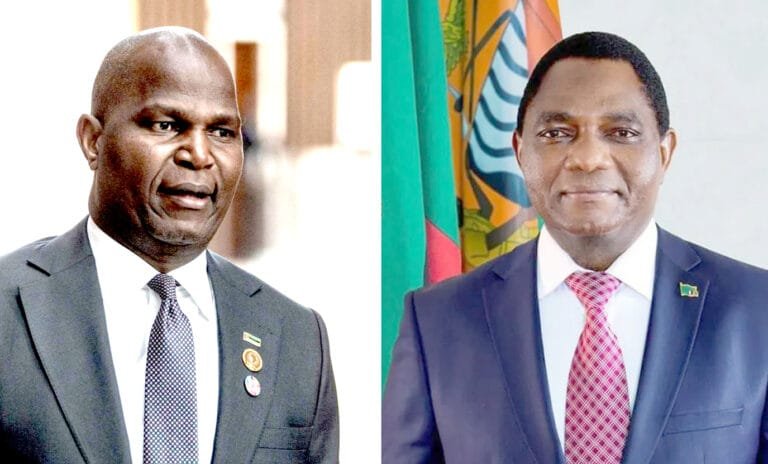LUKASA, Zambia – Zambia and Mozambique have signed a bilateral agreement to establish a Single Window Border Post (OSBP)
at the Chanida and Kasakatiza border crossings,
a major step towards boosting trade and facilitating cross-border movement.
The agreement was signed at State House in Lusaka during official talks
between President Hakainde Hichilema and Mozambican President Daniel Chabo,
Independence Day
He is on a three-day working visit to Zambia and will serve
as the guest of honour at the country’s 61st Independence Day celebrations on Friday.
Zambian Foreign Minister Mulambo Haimbe and Mozambican Minister of Transport
But, and Logistics João Matlombe signed the Memorandum of Understanding,
and the two presidents witnessed the signing ceremony.
Hichilema hailed the OSBP initiative as a strategic move to eliminate trade bottlenecks
and promote cross-border economic growth.
“Our two countries must move from political assistance to trade-based cooperation
that creates opportunities for our people,” the Zambian leader said.
Chanida is the crossing point on the Zambian side of the border,
while Kasakatiza is the entry point on the Mozambican side.
Chapo emphasized that the new border facilities will simplify customs
and immigration procedures, reduce transit times, and lower the cost of doing business.
cooperation in infrastructure
The two leaders reviewed existing bilateral agreements
and explored new areas of cooperation in infrastructure, agriculture, energy, and security.
The two sides described the comprehensive strategic partnership agreement
between the two countries as a milestone in bilateral relations.
A reflection of their shared commitment to peace, stability and comprehensive development.
“The founders of our friendship, Dr. Kenneth Kaunda and Dr. Samora Machel,
laid the foundations,” President Hichilema said.
Today, we stand as partners in development, bound by history and driven by the future.”
He also proposed developing a gas pipeline to transport natural gas from Mozambique to Zambia,
Highlighting energy as a key area for future cooperation.
















